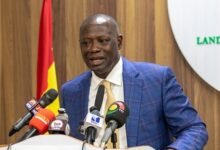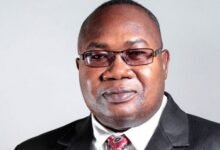‘Inequality remains challenge in Ghana’

INEQUALITY remains a challenge in Ghana, despite modest strides in economic growth and poverty reduction, the Minister of Planning, Professor George Gyan-Baffour, has said, with a call for concerted efforts to tackle the trend.
He said income inequality for instance, had been widened since 1992, increasing from 37 per cent to 43 per cent in 2017, per analysis of income distribution.
Prof Gyan-Baffour said the country was experiencing the situation despite the Ghana Poverty and Inequality, report which was launched last year, indicating that extreme poverty had declined by about 25 per cent between 1992 and 2013.
He was speaking at the 2019 high level technical review meeting on inclusive development, which was organised by the National Development Planning Commission (NDPC) and supported by other partners in Accra yesterday.
It was held on the theme “Inclusive development and public policy performance: Prospects for child-responsiveness and the way forward”, for representatives of state agencies, civil society organisations and development partners.
Participants accessed the country’s progress on commitments from previous year’s inclusive development fora and examined ways to ensure better integration of child-responsive perspectives into national development.
Prof Gyan-Baffour stated that an estimated 300, 000 Ghanaians, including children, could have been lifted out of poverty between 2006 and 2013 had inequality not increased within that period.
“This [inequality] is a serious threat to poverty reduction efforts and it must be tackled. We must fight inequality to lift more people out of poverty, sustain economic growth and maintain social cohesion”, he said.
According to Prof Gyan-Baffour, it was in addressing inequalities that a Coordinated Programme (2017-2024) was initiated, aimed at creating jobs aside the fact that government had created nearly two million formal and informal sector jobs since 2017.
That, he said had helped to reduce unemployment from 11.9 per cent in 2015 to 7.1 per cent in 2019, adding that the government was focused on expanding economic opportunities for more people.
Prof Gyan-Baffour admitted that there was the need for public policy to be more responsive in addressing the plethora of issues affecting children in Ghana as they were the future workforce of the country.
“We should ensure that in our generation no one is left behind by virtue of age, location , social condition , economic background or physical attributes”, the minister stated.
The UNICEF country director, Mrs Anne-Claire Dufay, called on the government to take the lead in tackling challenges affecting children.
She said teenage pregnancy, early marriage and other issues affecting children should be high on the agenda of government, while ongoing poverty alleviation projects should be boosted to help reduce the spate of inequality.
Acting Director-General of the NDPC, Dr Grace Bediako, in a speech read on her behalf, said following lesson learnt over the years, poverty reduction programmes were now geared towards inclusion, saying the commission would continue to press on until the gap was bridged.
BY JONATHAN DONKOR







